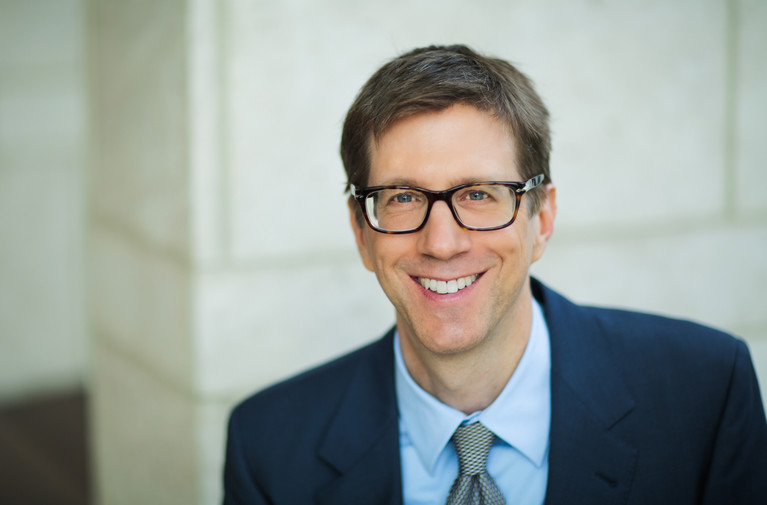Wayne State University Names Law Dean Richard Bierschbach as Interim President Amid Leadership Transition
Wayne State University’s Board of Governors swiftly appointed Law School Dean Richard Bierschbach as interim president on September 17, 2025, hours after accepting President Kimberly Andrews Espy’s resignation. This move aims to restore stability at the Detroit institution amid faculty tensions and national higher education pressures, with Bierschbach’s legal expertise positioned to guide the university through uncertain times.
Espy’s Resignation: Personal Reasons Amid Mounting Challenges
Kimberly Andrews Espy, Wayne State’s first female president and its 13th leader since August 1, 2023, announced her resignation citing personal reasons in a campus-wide email just before 3:30 p.m. on September 17. The Board of Governors formally accepted it during a special 5 p.m. meeting at the McGregor Memorial Conference Center.
Espy, 62, joined from the University of Texas at San Antonio with a five-year contract signed in July 2023, carrying a $690,000 base salary set for 3% annual increases. Her departure included a $760,000 settlement—deemed a “bargain” by experts—plus health care benefits, in exchange for waiving faculty return rights.
Sources cited strained board relations, including the August 2025 unexplained paid leave of School of Medicine Dean Dr. Wael Sakr, which bypassed faculty input and sparked outrage. Interim dean Dr. David Rosenberg resigned soon after, highlighting governance rifts. A lawsuit from 12 students arrested in a 2024 pro-Palestinian protest further amplified criticisms over free speech and decision-making.
Bierschbach’s Appointment: A Collaborative Stabilizer Steps Forward
The board unanimously selected 53-year-old Richard Bierschbach, dean since 2017 and reappointed in 2022, as interim president. Board Chair Shirley Stancato lauded his “strong, trusted, and transformational” leadership, noting boosts in philanthropy, new programs, and postgraduate outcomes that elevated the Law School’s national ranking.
Bierschbach, a John W. Reed Professor specializing in criminal procedure and administrative law, expressed humility: “I’m humbled that the board has asked me to do this… I can promise to do my level best to work with you all.” He plans to return to the deanship post-interim, with an acting dean to be named via faculty consultation.
In a September 18 campus message, Bierschbach reaffirmed Wayne State’s mission as “urban public education as it should be,” drawing from his parents’ working-class roots to connect with diverse students. His legal background, university officials said, equips him to assess risks amid federal funding cuts and Trump administration probes.
Wayne State’s Context: Navigating Turmoil in Higher Ed
A Carnegie R1 institution with 24,000 students, Wayne State drives Detroit’s economy through research in health, engineering, and urban studies. Espy’s tenure overlapped with campus protests over Israel divestment and broader governance erosion, per faculty unions.
The medical school’s instability—Sakr’s leave drew a faculty memo demanding reinstatement—exemplified rifts, with the Wayne Academic Union decrying “erosion of shared decision-making.” These issues align with national strains, including DEI scrutiny and funding threats, where Bierschbach’s acumen could prove pivotal.
Reactions: Faculty Praise, Calls for Accountability
Law faculty embraced the pick. Professor Peter J. Hammer called Bierschbach a “builder” for navigating “traumatic” environments without capitulation. Associate Professor Justin Long deemed it the “best decision” for bridging faculty-administration gaps. Social Work Dean Sheryl Kubiak added, “He’s a wonderful partner, great collaborator.”
Union President Jennifer Sheridan Moss welcomed potential fixes but demanded transparency on Sakr and protests. Students echoed calls for listening leadership, one anonymous undergrad telling WXYZ, “We need accountability.”
Higher ed consultant John Austin noted presidents face “skyrocketing demands,” stressing fit over haste.
Broader Implications: Stability for Detroit and U.S. Academia
This transition anchors Detroit’s revival, where Wayne State supports 50,000+ jobs via auto and health partnerships. Bierschbach’s interim role ensures continuity, protecting grants amid federal scrutiny.
Nationally, it mirrors public universities’ governance battles: Unions resist top-down moves, political divides threaten funds. Economically, it sustains Michigan’s $15 billion higher ed sector. Students gain from fewer disruptions; politically, it shapes funding debates in swing-state Michigan. Technologically, med school AI research could advance unhindered. Sports programs in NCAA Division II benefit from focused admin on scholarships.
Forward Momentum: A Steady Hand for Wayne State
Wayne State University’s appointment of Richard Bierschbach as interim president after Kimberly Andrews Espy’s resignation signals a commitment to collaboration amid challenges. With a national search for a permanent leader underway, Bierschbach’s expertise promises progress in academics, research, and community ties. As Detroit’s key engine, Wayne State emerges stronger, embodying resilient urban education.
Wayne State interim president 2025, Richard Bierschbach WSU, Kimberly Espy resignation, Wayne State Law Dean, WSU Board of Governors, Wayne State medical school controversy, university leadership transition, Detroit higher education, faculty governance WSU, WSU free speech lawsuit
